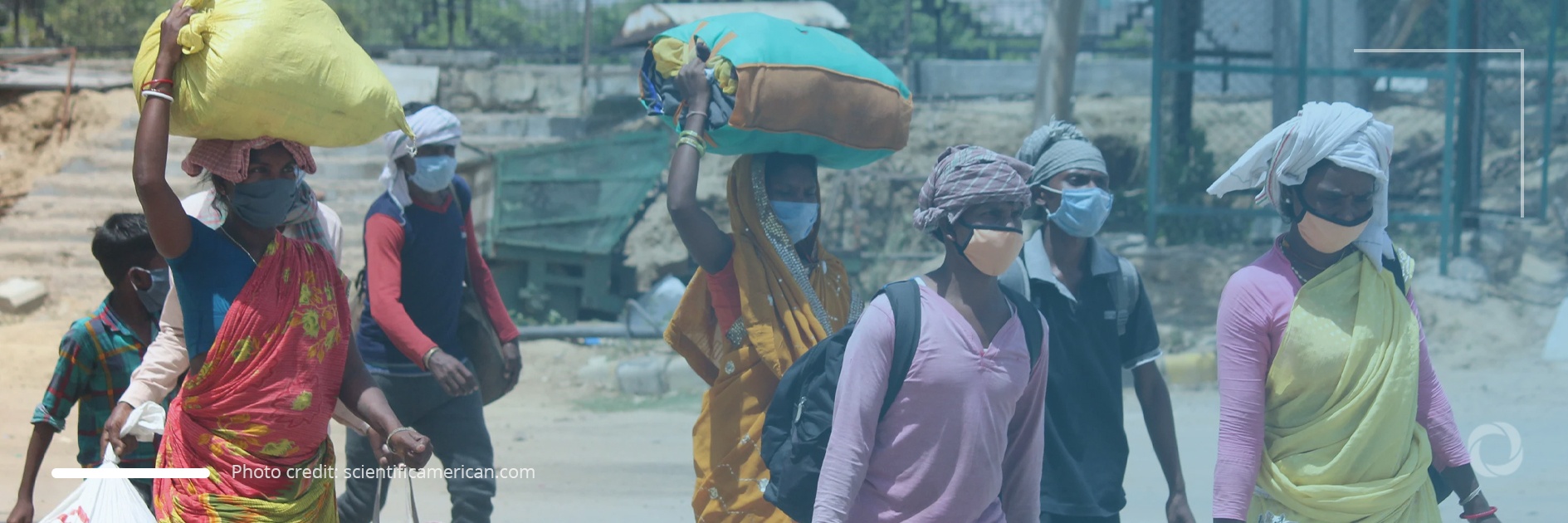The lockdowns imposed in India in an attempt to curb the spread of coronavirus have weakened its economy and left millions without jobs. Migrant workers, who account for about 20% of India’s labor force, have been badly affected with women finding themselves in a, particularly unfavorable position.
A study titled the Socio-Economic Impact of COVID-19 on Women Migrant Workers, carried out by the United Nations Development Programme (UNDP) among 10,161 migrant women workers from 12 states in India, has revealed that during the COVID-19 pandemic, migrant women faced declining incomes and poor access to social protection services. They also experienced an increased likelihood of severe crises due to the pandemic such as falling into poverty, hunger, illness, homelessness, and facing social stigma. Furthermore, rigid social norms have been seen to restrict the economic freedom of Indian women migrant workers even when they enjoy stable employment prospects.
The survey’s findings
Integrated social protection system needed
In view of these findings, UNDP has called for an integrated social protection system that includes preventive, promotive, protective, and transformational measures to support Indian migrant women workers.
The study describes food security, cash assistance, government health insurance, and protection against domestic violence being the four key dimensions of social protection measures required for Indian women migrant workers.
Underscoring that the inclusive policy will contribute to achieving the Sustainable Development Goals, Shoko Noda, UNDP Resident Representative in India, remarked: “This policy brief provides policy options to the government to adopt adequate public policy interventions to increase the positive impacts of human mobility, especially for women migrant workers, to work in safety and dignity.”
The study also recommended that career constraints and choices must guide gender-sensitive policies to effectively combat gender-based violence.
In order to generate new employment and livelihood opportunities, the study suggests identifying hotspots of vulnerability in the country and using targeting methods to reach out to the most vulnerable populations, establishing a database for mapping the skills of migrant workers and putting in place mechanisms for employment exchange fairs and campaigns in close coordination with private sector partners.
India’s US$2.87 trillion economy is driven by a labor force of about 518 million workers, of whom 80-90% are employed in the informal sector. Furthermore, domestic migrant workers make up nearly 20% of India’s total labor force and are considered key stakeholders in the growth prospects of India.


